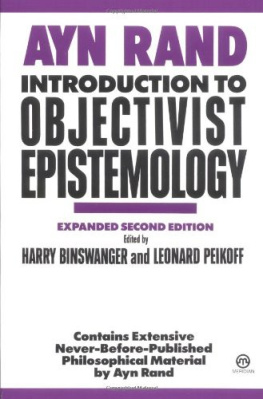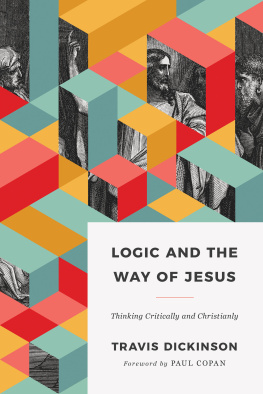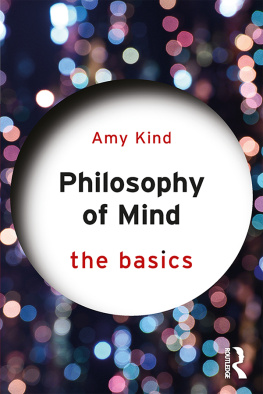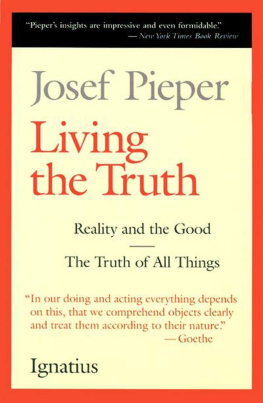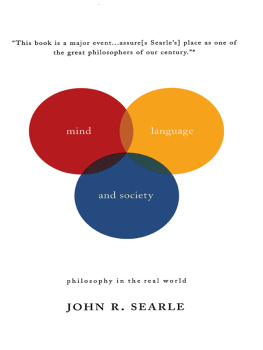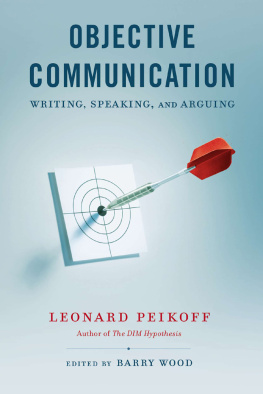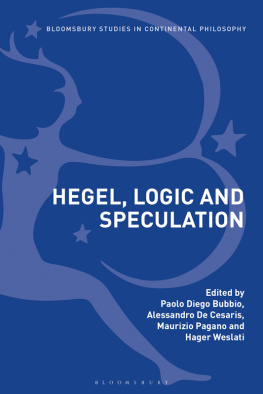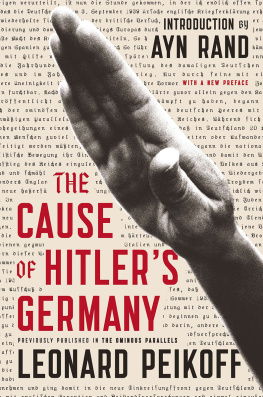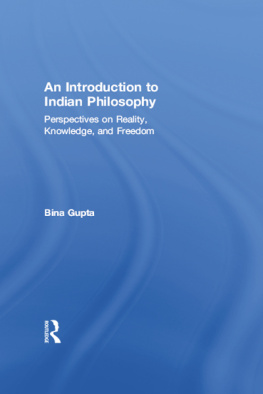Table of Contents
AYN RAND is the author of Atlas Shrugged , philosophically the most challenging bestseller of its time. Her first novel, We The Living , was published in 1936, followed by Anthem. With the publication of The Fountainhead in 1943, she achieved a spectacular and enduring success. Miss Rands unique philosophy, Objectivism, has gained a worldwide audience. The fundamentals of her philosophy are set forth in such nonfiction books as: For The New Intellectual , The Virtue of Selfishness , Capitalism : The Unknown Ideal , and The Romantic Manifesto . Ayn Rand died in 1982.
DR. LEONARD PEIKOFF worked closely with Ayn Rand for many years and was designated by her as heir to her estate. He has taught philosophy at Hunter College, Long Island University, and New York University, and lectures on Ayn Rands philosophy throughout the country. Dr. Peikoff is the author of The Ominous Parallels : The End of Freedom in America (Meridian), and editor of The Early Ayn Rand (Signet). He lives in South Laguna, California.
DR. HARRY BINSWANGER, an associate of Ayn Rand, received his doctorate in philosophy from Columbia University. He has taught philosophy at Hunter College and given courses on Objectivism at the New School for Social Research. Dr. Binswanger is the author of The Biological Basis of Teleological Concepts , and editor of The Ayn Rand Lexicon (Meridian). He lives in New York City.
THE AYN RAND LIBRARY Vol. I. PHILOSOPHY: WHO NEEDS IT
by Ayn Rand
Vol. II. THE EARLY AYN RAND:
A Selection from Her Unpublished Fiction
Edited by Leonard Peikoff
Vol. III. THE OMINOUS PARALLELS
by Leonard Peikoff, with an
Introduction by Ayn Rand
Vol. IV. THE AYN RAND LEXICON:
Objectivism from A to Z
by Harry Binswanger , with an
Introduction by Leonard Peikoff
Vol. V. THE VOICE OF REASON:
Essays in Objectivist Thought
by Ayn Rand
with additional essays by
Leonard Peikoff
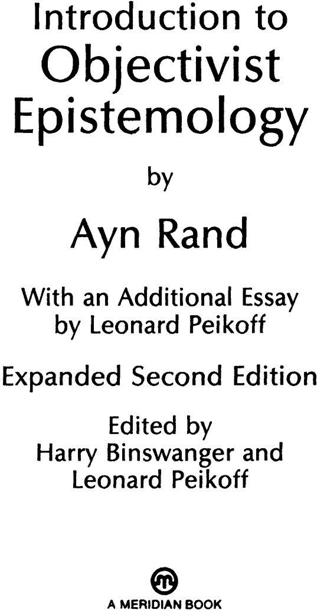
MERIDIAN
Published by the Penguin Group
Penguin Books USA Inc., 375 Hudson Street, New York, New York 10014, U.S.A.
Penguin Books Ltd, 27 Wrights Lane, London W8 5TZ, England
Penguin Books Australia Ltd, Ringwood, Victoria, Australia
Penguin Books Canada Ltd, 10 Alcorn Avenue, Toronto, Ontario, Canada M4V 3B2
Penguin Books (N.Z.) Ltd, 182-190 Wairau Road, Auckland 10, New Zealand
Penguin Books Ltd, Registered Offices:
Harmondsworth, Middlesex, England
Published by Meridian, an imprint of Dutton Signet, a division of Penguin Books USA Inc. Published simultaneously in Canada.
Introduction to Objectivist Epislemology : Copyright 1966,1967, by The Objectivist, Inc. First published in The Objecivist July 1966-February 1967.
The Analytic-Synthetic Dichotomy : Copyright 1967 by The Objectivist, Inc. Originally appeared, in five parts, in the May, June, July, August and September, 1967, issues of The Objectivist
Appendix: Copyright 1990 by Estate of Ayn Rand.
All rights reserved.
Permission requests for college or textbook use should be addressed to the Estate of Ayn Rand, Box 177, Murray Hill Station, New York, NY 10157.
Information about other books by Ayn Rand and her philosophy, Objectivism, may be obtained by writing to Objectivism, Box 177, Murray Hill Station, New York, New York 10157 USA.

REGISTERED TRADEMARKMARCA REGISTRADA
Library of Congress Cataloging-in-Publication Data
Rand, Ayn.
eISBN : 978-1-101-13720-8
0-452-01030-6 (pbk.)
1. Philosophy. I. Peikoff, Leonard. II. Binswanger, Hany. III. Title. IV. Title: Objectivist epistemology.
B945.R233167 1990
121dc20 89-39565
CIP
Without limiting the rights under copyright reserved above, no part of this publication may be reproduced, stored in or introduced into a retrieval system, or transmitted, in any form, or by any means (electronic, mechanical, photocopying, recording, or otherwise), without the prior written permission of both the copyright owner and the above publisher of this book.
BOOKS ARE AVAILABLE AT QUANTITY DISCOUNTS WHEN USED TO PROMOTE PRODUCTS OR SERVICES. FOR INFORMATION PLEASE WRITE TO PREMIUM MARKETING DIVISION, PENGUIN BOOKS USA INC., 375 HUDSON STREET, NEW YORK, NEW YORK 10014.
http://us.penguingroup.com
Foreword to the First Edition
(This work was first published in
The Objectivist July 1966-February 1967.)
This series of articles is presented by popular demand. We have had so many requests for information on Objectivist epistemology that I decided to put on record a summary of one of its cardinal elementsthe Objectivist theory of concepts. These articles may be regarded as a preview of my future book on Objectivism, and are offered here for the guidance of philosophy students.
The issue of concepts (known as the problem of universals) is philosophys central issue. Since mans knowledge is gained and held in conceptual form, the validity of mans knowledge depends on the validity of concepts. But concepts are abstractions or universals, and everything that man perceives is particular, concrete. What is the relationship between abstractions and concretes? To what precisely do concepts refer in reality? Do they refer to something real, something that existsor are they merely inventions of mans mind, arbitrary constructs or loose approximations that cannot claim to represent knowledge?
All knowledge is in terms of concepts. If these concepts correspond to something that is to be found in reality they are real and mans knowledge has a foundation in fact; if they do not correspond to anything in reality they are not real and mans knowledge is of mere figments of his own imagination. (Edward C. Moore, American Pragmatism : Peirce, James, & Dewey, New York: Columbia University Press, 1961, p. 27.)
To exemplify the issue as it is usually presented: When we refer to three persons as men, what do we designate by that term? The three persons are three individuals who differ in every particular respect and may not possess a single identical characteristic (not even their fingerprints). If you list all their particular characteristics, you will not find one representing manness. Where is the manness in men? What, in reality, corresponds to the concept man in our mind?
In the history of philosophy, there are, essentially, four schools of thought on this issue:
1. The extreme realists or Platonists, who hold that abstractions exist as real entities or archetypes in another dimension of reality and that the concretes we perceive are merely their imperfect reflections, but the concretes evoke the abstractions in our mind. (According to Plato, they do so by evoking the memory of the archetypes which we had known, before birth, in that other dimension.)2. The moderate realists, whose ancestor (unfortunately) is Aristotle, who hold that abstractions exist in reality, but they exist only in concretes, in the form of metaphysical essences, and that our concepts refer to these essences.3. The nominalists, who hold that all our ideas are only images of concretes, and that abstractions are merely names which we give to arbitrary groupings of concretes on the basis of vague resemblances.4. The conceptualists, who share the nominalists view that abstractions have no actual basis in reality, but who hold that concepts exist in our minds as some sort of ideas, not as images. (There is also the extreme nominalist position, the modern one, which consists of declaring that the problem is a meaningless issue, that reality is a meaningless term, that we can never know whether our concepts correspond to anything or not, that our knowledge consists of wordsand that words are an arbitrary social convention.)
Next page
